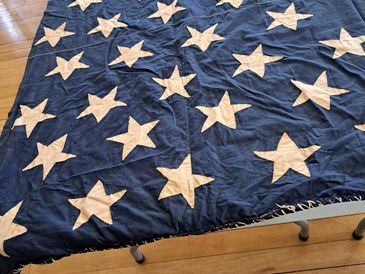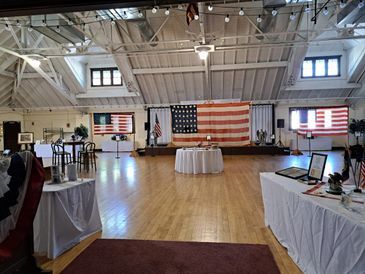Coming Events at the Westerly Armory

The Independence Ball (Town Celebrates the Nation's 250th Saturday, March 21
The Independence Ball (Town Celebrates the Nation's 250th Saturday, March 21
The Town of Westerly announces
The Independence Ball featuring a catered buffet dinner, live entertainment with period instruments and a “caller” for dancing.
The hall will be decorated in colonial flags, banners of Revolutionary War leaders, and a visit by a Rhode Island historic militia unit. Time: 6-9 pm.
Tickets available on Eventbrite.
.jpg/:/cr=t:24.98%25,l:0%25,w:100%25,h:50.03%25/rs=w:365,h:274.4360902255639,cg:true)
An Afternoon with Chef Terranova, Saturday, April 18 at 2 pm
The Independence Ball (Town Celebrates the Nation's 250th Saturday, March 21
Chef Terranova returns to the Armory for an afternoon of cooking and fun. The Westerly-born Chef will answer questions after his demonstration. Snacks included.
Ticket: $25.00 prior to event: $30 at the door. Tickets available soon.

The Delightfully Respectful Celebration of the Nation's 50 States Thursday, May 14 at 5 pm
Light supper followed by a delightful presentation highlighting the finest aspects of all 50 states -- and, how Rhode Island stacks up in importance.
Colorful PowerPoint presentation given in honor of the Nation's 250th anniversary. Suitable for ages 10 and up. Presenter: R.oberta Mudge Humble.
Ticket: $28.00 in advance; $30 at the door.

Stars & Stripes: Flag Day at the Armory Sunday, June 14 11 am - 7 pm
Celebrate the Nation with a visit to the Armory for Flag Day. On display will be early United States' Flags in addition to Rhode Island, Thin Blue & Red Line flags, and displays of Americana. This is a walk-through event.
Suggested donation: $5.00 pp (children under 10 free)

Special Tours of the Museum & Armory Building Fri, July 3 10 am - 4 pm
Special Tours of the Museum & Armory Building Fri, July 3 10 am - 4 pm
The Armory will be open on Saturday, July 3 for special tours of the entire building in addition to its award-winning museum.
Even the tower will be open for a visit and to see the amazing view from up high on the Armory's roof.
Suggested donation (adults): free but donations most welcome

Appreciation Evening SAT, OCT 17 at 6 pm
Special Tours of the Museum & Armory Building Fri, July 3 10 am - 4 pm
Appreciation Evening this year is special, honoring four Westerly-bred individuals who served our nation as well as their community.
Honorees this year are Alcino Almeida, representing the US Air Force and Civil Air Patrol; William Bruce Tuckerman, representing the US Navy; Raymond Capalbo representing the US Marines, and George Greer, rep
Appreciation Evening this year is special, honoring four Westerly-bred individuals who served our nation as well as their community.
Honorees this year are Alcino Almeida, representing the US Air Force and Civil Air Patrol; William Bruce Tuckerman, representing the US Navy; Raymond Capalbo representing the US Marines, and George Greer, representing the RI National Guard. Each has also well done service to their community . Tickets will be available soon. Dinner, entertainment by the Company Bees.

The AMerican Halloween Ball SaT, Oct 24, 7-11 pm
This i the AMERICAN Halloween Ball where costumes depict something/someone American -- oldish or newish. Do your best and have fun with it. Snacks provided. Wine & beer available.
Ticket: $25 pp in advance: $30 at the door
Game Day at the Armory Saturday, Nov 15, 10-3
All kinds of hands-on games including some original games such as a horse race, and rubber chicken basketball. American corn hole, and much more. Events are for both children and adults.
Ticket: Adult $10; Child under 10, $5

Anniversary Holiday Concert by The WEsterly Band Sunday, Dec 13 at 2 pm
Anniversary Holiday Concert by The WEsterly Band Sunday, Dec 13 at 2 pm
Anniversary Holiday Concert by The WEsterly Band Sunday, Dec 13 at 2 pm
America's oldest active community band celebrates the holidays and its over 170 years of playing wonderful music.
Suggested donation: $10
Westerly Armory
Mail goes to: PO Box 614 Westerly, RI 02891
Phone: 401.596.8554 FAX: 401.596.9529
Located at 41 Railroad Avenue, Westerly, RI 02891
Email: westerlyarmory@aol.com